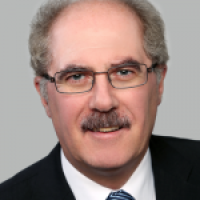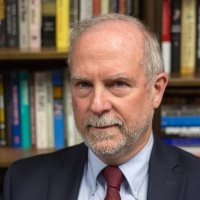Uncertain Allies: Nixon, Kissinger, and the Threat of a United Europe
John F. Kennedy wanted to build a "new Atlantic partnership" and did "not regard a strong and united Europe as a rival but as a partner." Donald Trump saw the European Union as a "foe" and openly supported the disintegration of the EU by championing Brexit and considering to withdraw from NATO. Trump's overt hostility was prefigured by Washington's economic and geopolitical strategies of the 1970s. In Klaus Larres’ just published new book Uncertain Allies: Nixon, Kissinger, and the Threat of a United Europe (Yale University Press) he outlines that the Nixon and Kissinger years were a major turning point - in fact a "pivotal moment" - when "benign transatlantic hegemony" gave way to an attitude toward Europe that was seldom better than lukewarm, frequently outright hostile, and that was returned in kind. This book, it has been said, "offers an unusually clear and comprehensive examination of transatlantic relations during the Nixon era."
Klaus Larres is the Richard M Krasno Distinguished Professor in History & International Affairs at the University of North Carolina at Chapel Hill. Previously, he held the Henry A. Kissinger Chair at the Library of Congress, was a Senior Policy Adviser at the German Embassy in Beijing, China; taught at Yale, Johns Hopkins/SAIS, the University of London and Queen’s University Belfast; and was a member of the Institute for Advanced Study in Princeton, NJ. Among his publications is Churchill’s Cold War: The Politics of Personal Diplomacy.
The Washington History Seminar is co-chaired by Eric Arnesen (George Washington University and the National History Center) and Christian Ostermann (Woodrow Wilson Center) and is organized jointly by the National History Center of the American Historical Association and the Woodrow Wilson Center's History and Public Policy Program. It meets weekly during the academic year. The seminar thanks its anonymous individual donors and institutional partners (the George Washington University History Department and the Lepage Center for History in the Public Interest) for their continued support.
Speaker

Richard M Krasno Distinguished Professor in History & International Affairs at the University of North Carolina at Chapel Hill
Moderators

Woodrow Wilson Center

Professor of History, The George Washington University. Director, National History Center of the American Historical Association.
Panelist

Hosted By

History and Public Policy Program
A leader in making key foreign policy records accessible and fostering informed scholarship, analysis, and discussion on international affairs, past and present. Read more
